Rameau: In Convertendo (Christie, Rivenq, Daneman)
Introduction
Another in Opus-Arte`s fine series of DVD`s dedicated to the music of Jean-Philippe Rameau. Here though, we don`t have any of his operatic works, but earlier and more intimate music, performed by Les Arts Florissants.
The music on this disc is the motet, `In Convertendo`, and a set of his Pièces de Clavecin en concert, consisting of `La Timide`, `La Poplinière` and `La Rameau`.
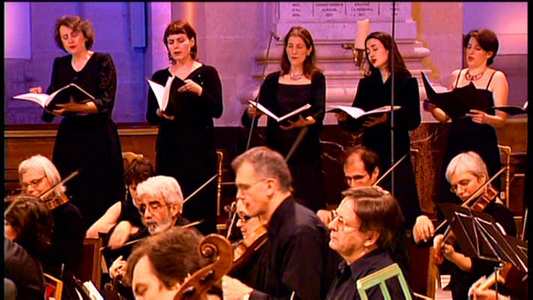
Video
Region-free NTSC 16:9 anamorphic. This is not necessarily too interesting for the documentary on the disc, but shows itself at its best duing the performance of the motet, which takes place in the wonderful surroundings of the Saint-Louis des Invalides church in Paris.
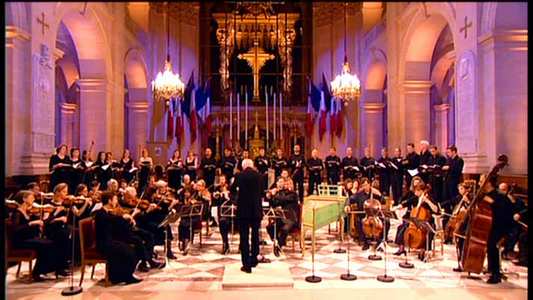
Audio
The DTS track is best used dueing the musical portion of the dsic (not sure the documentary actually comes in DTS anyway). The sound is beautifully clear throughout, although I would have preferred a little more presence from the harpsichord in the chamber pieces, especially as William Christie says that Rameau used the other instruments mainly to accompany and complement this instrument`s music rather than dominate it. This though, as many of my niggles are, is a very small one.
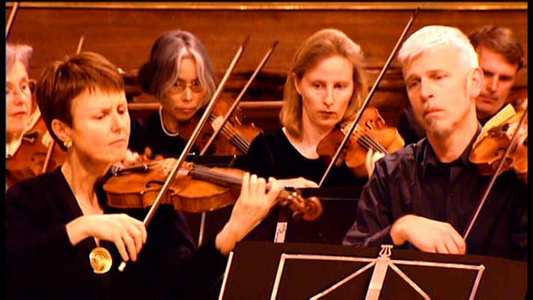
Features
If we can call it an `extra`, then we have a substantial and fascinating documentary by Reiner E. Moritz (who also wrote the short essay for the booklet, paraphrasing much of what we learn in the film) on Rameau`s life and works. I certainly learnt more about the composer and his ideas from here than I knew before, and was intrigued to hear that he was passionate about the physics of music and how it shaped other art forms, and indeed sciences (proving his case by showing the strict mathematical rules which music followed). I`m not sure that anyone had done as much in this sphere since the ancient Greeks.
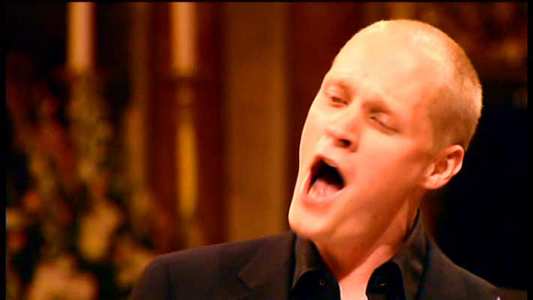
Conclusion
The music on the disc is performed as well as you would want it (despite a tenor in the choir coming in a little too soon during `Tunc Repletum` - and I `rewound` it a few times to make sure…not that I`m picky or anything). Much of Rameau`s output is new to me, and so it was wonderful to hear the main work (In Convertendo) for the first time. `Euntes ibant et flebant` has got to be one of greatest final choruses ever written and I challenge anyone to resist being moved by this performance. The enjoyment has obviously got to the soloists in this work as well, as they react musically (and physically) to whatever the others do rather than just `stand and deliver` as we are all too used to from more staid performances of choral works.
The enjoyment is less obvious during the chamber music as everyone looks far too serious, but the performance is never less than perfect, and I was highly impressed by Nima Ben David`s viola da gamba playing.
Trying my best to find something wrong with the disc, I came up with the following :
1) When playing the music continuously, there is not enough of a gap between the motet and the chamber works. `La Timide` felt as if it intruded upon the necessary silence after the major piece had finished.
2) The indexing of the chamber works seemed a little odd. Every one of them appeared as number 1, and I wasn`t allowed to press `next`, `or `previous`.
3) There wasn`t enough music.
Hardly showstopping complaints though. If this is the final disc in the series, then it`s a fitting climax to a very persuasive argument for Rameau`s music and can`t be recommended too highly.
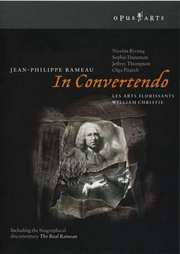





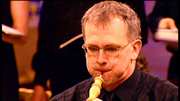




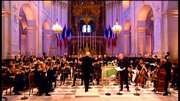

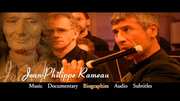






























Your Opinions and Comments
Be the first to post a comment!